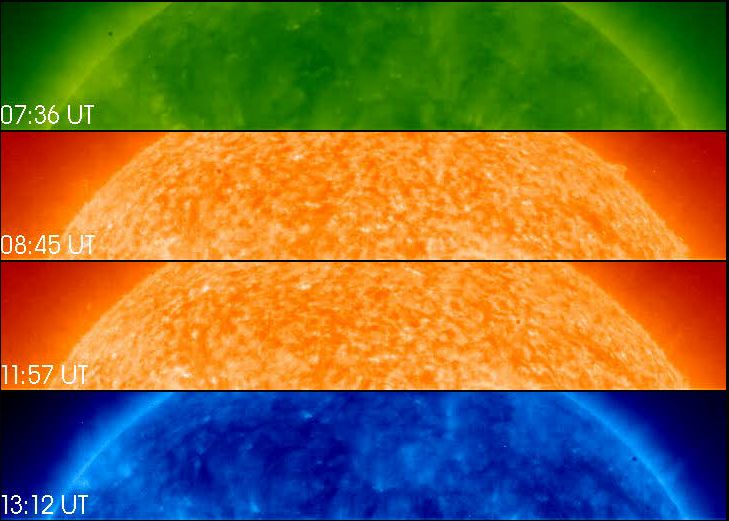Mercury Spotting

Explanation:
Can you
spot the planet?
The diminutive disk of Mercury, the solar system's
innermost planet,
spent about five hours crossing in front of the enormous solar disk
on 2003 May 7,
as
viewed from the general vicinity of planet Earth.
The Sun was above the horizon during
the entire transit for observers
in Europe, Africa, Asia, or Australia, and the horizon was
certainly
no problem for the sun-staring SOHO spacecraft.
Seen as
a dark spot,
Mercury progresses from left to right
(top panel to bottom) in these four images from SOHO's extreme
ultraviolet camera.
The panels' false-colors correspond to different wavelengths in
the extreme ultraviolet which highlight regions above the Sun's
visible surface.
This
was the first of 14 transits of Mercury which will occur during the 21st
century,
but the next similar event will be a much more rare
transit of Venus this coming Tuesday.
Need help spotting Mercury?
Just click on the picture.
News flash: Venus
to cross the Sun on Tuesday
Authors & editors:
Robert Nemiroff
(MTU) &
Jerry Bonnell
(USRA)
NASA Web Site Statements, Warnings,
and Disclaimers
NASA Official: Jay Norris.
Specific
rights apply.
A service of:
LHEA at
NASA /
GSFC
& Michigan Tech. U.

